The women of Marawi: Threading the way back to normalcy
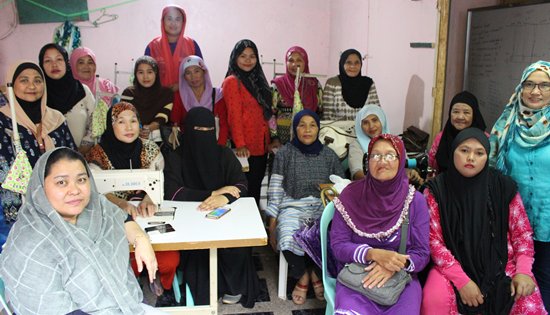
By
DTI-ROG
October 24, 2017
MAKATI CITY –
Making ends meet is a great challenge for residents of Marawi City
but these women are doing everything just to stay afloat and keep
their family alive.
Sewing was their regular
source of livelihood, but all of a sudden, it came to an abrupt end.
On May 23, 2017, thousands of families were displaced by the war and
scores of families had to flee to ensure their families' safety.
But as they say, there's a
light at the end of the tunnel.
To hasten the recovery and
rehabilitation of Marawi City, the Department of Trade and Industry
(DTI), which leads the Bangon Marawi Task Force Sub-committee on
Business and Livelihood, provided these with sewing machines and
cloth as starter kits to help them earn while staying either
home-based or at evacuation centers.
Back in August, DTI-Region
10 identified 16 women internally displaced persons (IDPs) who will
be trained for dressmaking and were awarded with the sewing kits.
The 16 sewers are able to generate income for themselves.
From the Sta Elena
Gymnasium, where they temporarily stay, the 16 women sewers go to
the Provincial Training and Livelihood Development Center in Iligan
City, where every sewer can earn at least P500 after a day’s work.
For Asnia Sandiman, 23,
laying hands on a high-speed sewing machine was a dream come true.
Even as a kid, Asnia has been sewing handwoven tube skirts or malong
in Filipino, shoals, and long dresses to earn extra for her
schooling and for her family.
But with the new sewing
machines and cloth provided by DTI, Asnia can earn up to P1,300. At
school, her classmates also ask her to sew for them, allowing her to
earn even more.
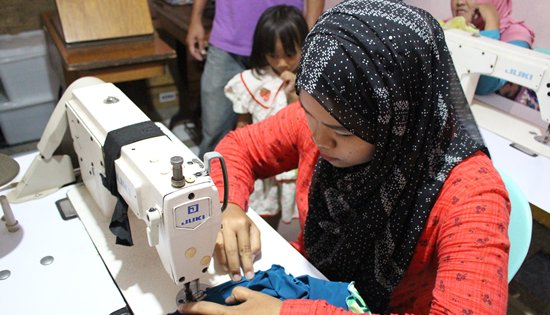
To Asnia, the new sewing
kits was her new lease on life amid the crisis that she and her
family are going through.
"Naappreciate namin at
sobrang masaya kami. Parang nabigyan kami ng panibagong buhay," a
teary-eyed Asnia said, while recalling the time when the terrorists
where banging on their door.
"Malaking tulong sa amin
ito," she added.
On the other hand, the
DTI's Negosyo Center and PTLDC ensure that the handwoven malongs,
shoals, and long dresses made by the IDP sewers go to the market.
Indeed the products ended up in the right market with orders coming
in from SM Cagayan de Oro, Manila, the Bangon Marawi Concert, Bangon
Marawi Store at DTI main office in Makati City. There are also
orders from Rustan's for the Go Lokal! Project.
Fellow IDP and 36-year-old
Memeng Dianal, said the sewing kits allowed her to feed her six
children everyday. From P500 she earns before, now, Memeng earns
P2,000 a day, finishing at least 20 handwoven malongs, shoals, and
long dresses.
“Malaking tulong ito sa
amin [sewing kits] kahit kaunti-konti natutustusan namin yung
araw-araw na pangangailangan namin,” Memeng said.
Despite knowing that her
family’s home in ground-zero is now levelled due to the conflict,
Memeng is hopeful that once they return to Marawi, there will be
more opportunities for her and other Marawi residents. If only she
can handle two businesses, she would do it for her children.
“Kung pwedeng doblehin ang
business, magdodoble kayod ako para sa mga anak ko,” she said.
Now with the fighting
officially declared over by the government, Asnia and Memeng,
together with other residents of Marawi will just have to wait for
their return to their hometown.
After all, hope springs
eternal.
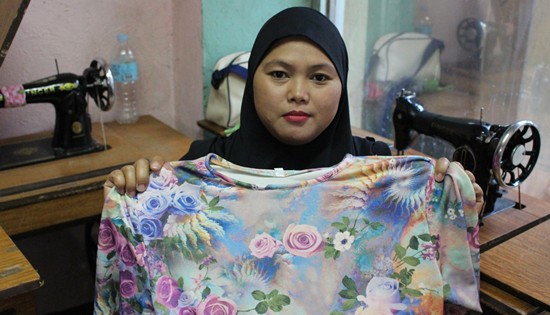
|
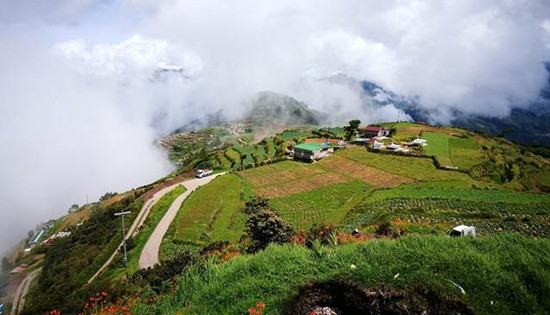
Overlooking
a carrot and romaine fields in one of the highland vegetable
terraces of Maria's Farm, situated on over 2,000 above sea
level (ASL) in the town of Kibungan, Benguet. |
Former OFW uplifts
Cordillera farmers into exporters
GDME Fruits and
Vegetables leads PH highland farmers to global market
By
CITEM
September 11, 2017
MAKATI CITY – The
province of Benguet has been making a mark in the international
market as a sourcing hub for premium agricultural products, such as
fruits, vegetables, coffee, and other highland crops.
With more than half of its
residents or 100,000 farmers toiling on more than 30,000-hectare
farms scattered in vegetable-producing towns, Benguet is living up
to its moniker as the “Salad Bowl of the Philippines.”
But the farmers from the
province, including most areas in the Cordillera, has yet to realize
their full market potential in the lucrative export industry. This
difficulty contributes to the economic disadvantage of Cordilleran
farmers as the region’s agriculture sector records the least
contribution to their economy, despite employing 46 percent of the
labor force or 348,000 of its total 766,000 abled bodies.
“The lack of drive from
our farmers to export much of it has got to do with their local and
limited mindset,” said Maricel Hernaez. “Many of our farmers in the
Cordillera are producing crops with the idea of harvesting it only
either for their own household consumption or for selling at the
local vegetable trading post.”
Taking Philippine fruits
and vegetables from highlands to overseas
A former overseas Filipino
worker (OFW), Hernaez came back to the Philippines with a dream: to
abolish the domestic-centric mindset of the Cordillera farmers and
help them penetrate the international market.
Born and raised in a
farming family in Cordillera, her life-mission sprung during her
service as a domestic helper for five years in Singapore, where she
has keenly followed the sky-rocketing prices and huge demand for
highland fruits and vegetables.
“Grabe ang taas ng presyo
ng gulay sa Singapore, for example nalang ‘yung isang malaking
patatas minsan umaabot ng two dollars at pati ‘yung cabbage nasa
mahigit one dollar ang 250 grams. Dito sa Pilipinas, nasa limang
piso lang ang patatas na malalaki at yung cabbage, isang kilo na
katumbas ng one dollar mo,” she shared. “Kung produkto lang naman
ang paguusapan, competitive ang galing sa Pilipinas pagdating sa
laki at kalidad.”
In her last working year
as a domestic helper, Hernaez met up with the Philippine Trade and
Investment Centre (PTIC) in Singapore to seek guidance on her plan
to become a vegetable and fruit exporter. In March 2015, she came
back to the Philippines and immediately established her company,
GDME Fruits and Vegetables Trading, naming it after her parents:
Gilbert Domerez (father) and Mercy Espara (mother).
“My parents who made a
living through farming have inspired me to pursue this agenda,” she
elated. “They are the foundation of my goal of nurture the country’s
agri-export market by tapping the promising farming communities in
Cordillera.”
A tall order
Having no land to call her
own, Hernaez has been operating GDME Fruits and Vegetable Trading
for the past two years as its sole networking, monitoring, and
marketing officer for grassroots farmers across the Cordillera
region.
In her networking
initiatives with the local farmers, it has always been a challenge
for her to explain, innovate, and change some of their farming
methods and even their products to suit the demand of the global
market.
“Going one by one with the
farmers, I always explain that we have the tools to compete with
other countries. We are situated at a higher elevation with the
perfect soil and climate. Most importantly, our farmers are
hard-working,” she stressed. “But, I tell them we should comply with
food standards and certifications. I also encourage them to plant
the crops that are in-demand because if we plant crops that no one
wants to buy then it will just go to waste.”
Without a formal academic
background in agriculture, she has always been looking for fresh
ideas and new ways on how to improve her technical know-how on the
export industry by attending seminars and partnering with government
agencies, such as the Department of Agriculture (DA) and the
Department of Trade and Industry (DTI).
“I never missed
opportunities where I can learn new things. Last May, I joined IFEX
Philippines, together with our farmers, where we encountered people
who are willing to help us grow,” Hernaez said. “We were also glad
to meet foreign buyers that are really interested in our fruits and
vegetable products.”
Now GDME Fruits and
Vegetables Trading has partnered and has been consolidating the
yield of more than 60 farmers in communities located in the
municipalities of Kibungan, which is considered the “Little Alaska
of the Philippines,” as well as in Mankayan, and Kabayan.
Among her community
partners are the Bosingan Multi-Purpose Cooperative, Mankayan Young
Farmers, Maria’s Farm, and the Bashoy Kabayan Multi-Purpose
Cooperative.
Fresh from the highlands,
they offer different varieties and cultivars of potato, radish,
carrot, chayote, cucumber, cabbage, Chinese cabbage, tomato, romaine
zucchini, sugar beets, bell pepper, broccoli, cauliflower, onion
leeks, snow peas, and green beans.
“In our farm, we are able
to grow fruits in huge sizes. For instance, in our cabbages, we are
cultivating the scorpio F1 hybrid and sugarloaf varieties. When
fully grown, these varieties can reach an average net weight of 2
kilograms each, while your regular lowland cabbage varieties only
reach 1 kilograms each. Our is twice the size,” she said.
Her partner farmers are
also cultivating strawberry, lemon, parsley, cilantro, kale, mint,
basil, alfalfa, arugula, red radish, young corn, fennel leaves, and
okra.
They also have some of the
iconic Cordillera processed goods, such as sweet and sour chili
sauce, strawberry jam, peanut butter, and kimchi.
Hernaez said an exporting
farmer will be able to earn at least 15 pesos more per kilo of their
harvest. She added: “Some might even go double the price when
depending on their reception on our quality and demand.”
"With these many products,
we are targeting the demand in Singapore and other nearby ASEAN
countries, as well as those in the Middle East,” she added. “We are
also open to offers from other buyers across the globe that can be
beneficial to the livelihood of our farmers.”
Cordillera farmers moving
forward
While the high elevation
augments the harvest, it also makes highland fruits and vegetables
prone to risks of climate change, making its price highly volatile.
“We know that there is a
demand for our agricultural products, but the next step is how we
can corner that demand? With our talks with people that we met on
IFEX Philippines, we should be able to do it if we set our fruits
and vegetables at stable prices and produce them at a sustainable
rate. It’s a challenge for us here in the highland considering the
ever-changing weather conditions,” said Hernaez.
Faced with this
predicament, Hernaez is trying to hit two birds with one stone in
creating a viable year-round crop rotation system: working on
identifying the in-demand varieties crops that are a tolerant to
extreme weather and are resistant to pests and diseases.
“With this method, we also
can minimize the use of synthetic chemicals and inputs, or apply
good farming practices which involve the balanced application of
organic and chemical inputs,” she explained.
The former OFW also
continues to widen her network to increase their agriculture supply
and product selection, allowing small-scale farming communities to
accommodate bulk orders from foreign buyers.
At the same time, she is
helping Cordillera farmers secure the Good Agricultural Practices
(GAP) certification – an accreditation promoted by the ASEAN
community and is unanimously recognized in the international market.
Out of the 78
GAP-certified farms in the Philippines, only 4 farms are from
Cordillera.
According to the
Department of Agriculture - Bureau of Agriculture and Fisheries
Standards (DA-BAFS), GAP Certification ensures that a farm is not
only in the quality of his crops, but in all aspects of farming.
The GAP standard requires
a scrutiny of the history of the farm site and its prior use; the
type of soil, and its compatibility with crops and seed sources; the
judicious use of pesticides and fertilizers, whether chemical or
organic; the sources of potable water for irrigation and washing of
crops; the harvest and post-handling procedures; the health and
hygiene of the farmer and handlers, and other factors.
"Gusto kong makita sa mga
farmers if they can eat their products raw and fresh, ‘yun na kasi
uso din because there are a lot of vegetarians. ‘Yung iba kasi they
have a lot of pesticide to the point na hindi na pwede makain kasi
maamoy or matapang yung chemicals. At least with GAP
[certification], we can be one stop closer to this goal,” she said.
Aside from GAP
certifications, GDME Fruits and Vegetable Trading is also working to
secure Halal certifications for the community farmers as they are
targeting the demand for halal fruits and vegetables in the Middle
East, particularly in Dubai and U.A.E.
Though the Philippine
National Standards for Halal (PNS 2067: 2008), Halal products are at
par with international standards to enhance the competitiveness of
local industries, and to ensure product quality and safety for the
consumers.
“GDME Fruits and Vegetable
Trading is committed to prime Cordilleran farmers to become
export-ready in the global market so that they would grow together
with the company and the booming Philippine food industry,” she
said.
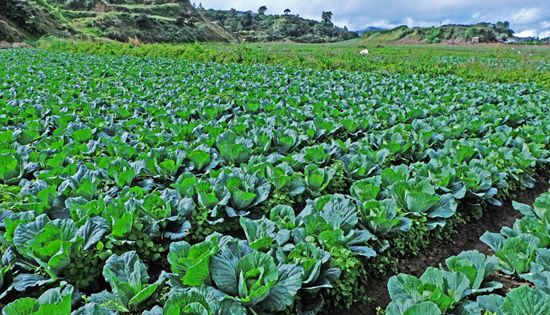
Muslim OFW breaks
waves; Opens the first Japanese Halal resto in the PH
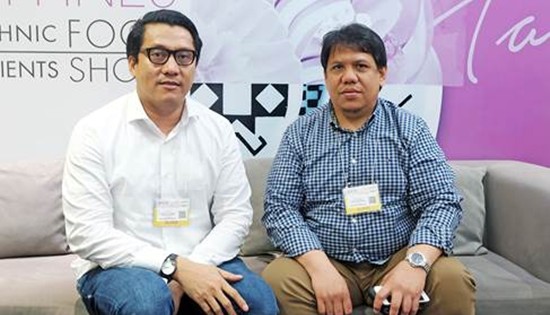
By CITEM
July 11, 2017
MAKATI CITY – The
Filipino worker who has served among the longest at King Saud
University as an administrative secretary and quality standard
coordinator for over 20 years is a Mindanaoan, who at childhood would
bravely cross islands by boat and alluvial plains on foot with his
brother during summertime to collect coconut shells and make them into
charcoal.
Coming from one of the
minority tribes in Mindanao known as the people of the current, Hasim
Salih Mammah conscientiously turned around an imminent tide of
deprivation into waves of success in his various personal and
professional engagements.
“I was raised by a
disciplinarian teacher-mother and a business-trader father to value
hard work, independence, and concern and respect for others at an
early age. Joining reach-out activities in Mindanao’s most impoverish
communities at teen age, and eventually awarded as among one of the
best scouts by the Boy Scout of the Philippines in Zamboanga City
boosted my interest to make a difference in life,” says Hasim.
Hasim was 18 years old and
recuperating from the demise of his father when he found himself
driving tamaraw jeepney along unpaved roads in outskirts of Zamboanga
City to sustain his schooling at the Western Mindanao State
University. He was a relentless working student throughout college,
finishing a degree in Political Science.
The young man who dared to
twist his fate in Metro Manila selling books and reading materials in
offices and homes eventually landed a job in Riyadh as a salesman and
one of the pioneering employees of a company that would become today’s
top retail franchise company carrying more than 80 of the world's
best-known retail brands across global markets.
“Hard work and work-focus
were my weapons to build the trust of my superiors,” Hasim relates as
he reminisced growing his career from being a salesman to becoming a
retail supervisor and sales advisor. His two years of exposure in
marketing top brands have built up in himself an incredible global
market knowledge and marketing strategies.
An epitome of Filipino
resiliency
When not at work during
weekend, Hasim would delight his close Filipino friends in Riyadh with
his Asian recipes that he casually prepared for their various special
occasions. “I cooked 100 percent Halal in the variety of my Asian
menus.” Hasim’s catering service, though limited to the Filipino
community, was handled with quality standards.
Having had received a
certification program with the Associate Chartered Quality Institute (ACQI)
made Hasim very meticulous in his service detail. The significant
learning he has accrued from his university research works on
“Academic Quality Management” manifested in the way he manages his
professional works and personal ventures.
Hasim became an epitome of
Filipino resiliency when he dared break through the Japanese food
business industry in Saudi Arabia. In 2012, about 12 years after a
decade-long season of servicing the Filipino community with his
home-based 100 percent Halal Asian food catering business, Hasim
decided to learn the trade of food service. “I went to various places
to learn the food service trade -- attending conferences and food expo
in Dubai, Malaysia, Singapore, Indonesia and Japan.” In his unyielding
pursuit of more knowledge in food service, Hasim met a Filipino who
has a lengthy experience as a Japanese chef.
Hasim manages the Samurai
Japanese Cuisine Restaurant in Riyadh since 2013. The restaurant that
employs mostly Filipino OFWs has been enjoying excellent reviews among
multi-racial customers and Japanese food fanatics in the city.
“It is amazing that Japan,
which has mere .05% Muslim population, enjoys numerous Japanese Halal
eateries spread across all its cities and provinces. It is sad though
that the Philippines has 11% Muslim population and yet has no Japanese
Halal restaurant found anywhere across the country,” reveals Hasim.
“It is this reality that
prompted me to bring to the Philippines the first 100 percent Halal
Japanese restaurant, called Samurai Halal Express.”
Innovative and authentic
taste at Samurai Halal Express
Located at a prime area in
the Food Court of Terminal-3 in the Ninoy Aquino International
Airport, the Samurai Halal Express is a cozy eatery for Muslims and
non-Muslims who love Japanese cuisine.
Strictly using imported
Halal meat and chicken and halal-authenticated ingredients, the first
Halal Japanese restaurant in the Philippines is proudly manned by a
Filipino sushi chef who has mastered the artistry of Japanese cuisine.
On top of the regular
Japanese cuisine selections, the Samurai Halal Express unveils several
innovative menus, such as the country’s first new ramen in a bowl with
choices of seafood, chicken and beef ramen – all in authentic taste.
“Everything is made to order
with the freshest ingredients, making sure that every dish is prepared
from scratch, and is cooked separately with secret flavor,” claims its
Sushi chef.
Samurai’s tempura and furai
(fried shrimp) are hand-picked and nicely coated with utmost care.
Customers are free to watch Samurai’s show kitchen. Customers can see
the preparation of sushi side and food orders as they are done the
traditional way – with not much fusion except for its authentic
ingredients. Children who love sushi will surely bask in its beef and
chicken roll designed with the fancy look.
Samurai Halal Express is
said to be a “market tester” that will soon become a model for
expansion to other places in the Philippines.
Like the daring young boy
who wandered places to collect coconut shells to produce charcoal and
who drove tamaraw jeepney around outskirts of Zamboanga City, and went
far to work abroad and acquired quality international experience and
education, the man of current will soon take Samurai Halal Express to
the hearts of the Filipinos.
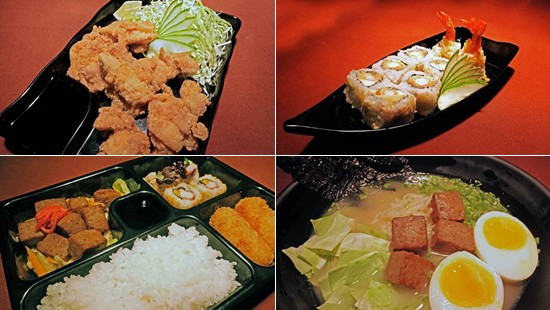
Cavite enterprise wins
back-to-back Katha Awards at IFEX Philippines
Kapfer and Rivera United
Inc. bags award for Processed Fruit and Vegetables with Puso ng Saging
By DTI-CITEM
May 23, 2017
PASAY
CITY – Cavite-based Kapfer and Rivera United Inc., makers of the
‘Island Gems’ brand, won the 2017 Katha Award for Food for the Best
New Product Award for Processed Fruit & Vegetables category for its
ready-to-eat bottled Puso ng Saging at the recently concluded IFEX
Philippines held at the World Trade Center Metro Manila (WTCMM) and
Philippine Trade Training Center (PTTC).
The company’s bottled Puso ng Saging, is an all-natural creation made
of banana blossoms, coconut cream, salted shrimp fry, and spices that
can be used as a spread, topping or the main dish. Consistent with the
company’s vision for the highest food standards, it contains premium
ingredients, no preservatives, and no added flavoring.
The award is a back-to-back win for the Filipino-German company,
having won the Katha Award in the same category in 2015 with their
ready-to-eat bottled Laing or Taro Leaves in Coco Cream.
"Kapfer and Rivera deserves
recognition for its consistency in delivering high-quality and
inventive Filipino-inspired products, such as Laing and Puso ng Saging,
which helps propel the Philippine in the international market as a
source of premium healthy and organic food products,” said Clayton
Tugonon, Executive Director of Center for International Trade
Expositions and Mission (CITEM), the organizer of IFEX Philippines.
A joint venture by Maria
Rivera, who came home from Singapore in 2012 with German husband Chris
Kapfer, the Kapfer and Rivera United Inc. started in 2012 with the
creation of their fine mango jam using premium ingredients.
As a boutique company, it is
committed to bringing new products to the market that are affordable
and authentic, never cutting corners with the use of artificial
additives like flavoring, coloring, and preservatives.
“I’m glad that our line of
healthy products is recognize here in IFEX Philippines,” said Kapfer.
“For this year, we are hoping to get more high-quality buyers from
Korea and Japan and this recognition in Katha is a big boost towards
this endeavor.”
Aside from tapping markets
abroad, Kapfer and Rivera Inc. aims to focus growth on the local
market, a segment that they believe has great potential and lacking in
premium quality locally made food.
“The Philippine economy is
doing well. More manufacturers are coming up with higher quality,
because people are demanding it,” said Managing Director Maria Rivera
Kapfer. “The problem is we tend to serve cheap stuff, synthetic stuff
for the Pinoys. Why give fruit-flavored jams? We give them real
fruit.”
Rivera added: “We deserve
quality goods for our people and we want to make it mainstream and
affordable. We could have chosen to go to go to gourmet shops but we
said no, we must democratize good quality food and make it more
affordable. You can’t always say, pwede na yan, local naman yan eh.
That’s really bad. We deserve better than that.”
Aside from Puso ng Saging
and Laing, the Filipino-German company is selling single-serve fruit
fillings, such as Strawberry, Calamansi, Guava, Mango and Pineapple,
as well as Macapuno and Ube de Pastillas, under their Island Gems
brand. The company is also offerings manufacturing and toll packaging
services.
As of now, Kapfer and Rivera
United Inc. have established retail stores in Urban Pantry (Green
Hills Metro Manila), Connie's Kitchen Deli (New Manila, Quezon City),
Real Food (Molito, Alabang), Landmark (Makati and Trinoma), Unimart
(Green Hills, Metro Manila), Ritual (San Lorenzo Village, Makati),
Shell Gas Mart (Slex to Batangas, after San Pedro Exit), Enchanted
Kingdom (Agila - The Eksperience) Duty Free (Kalibo, Palawan), and
selected stores of Robinsons Supermarket.
K&R United embraces the
traditional values of integrity, reliability, quality and
cost-effectiveness in dealing with its business partners and clients.
The company’s facility is
located in Cavite, an area in the southern region of Luzon in the
Philippines. We are licensed to operate (LTO), with Good Manufacturing
Practice (GMP) certifications, and registered in US Food and Drug
Administration (USFDA).
|
|
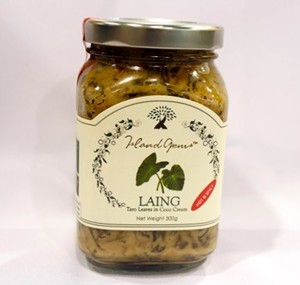
Island
Gem’s Laing – Processed Fruit and Vegetables 2015 Katha Award
Winner. |
◄◄home
I
next►►